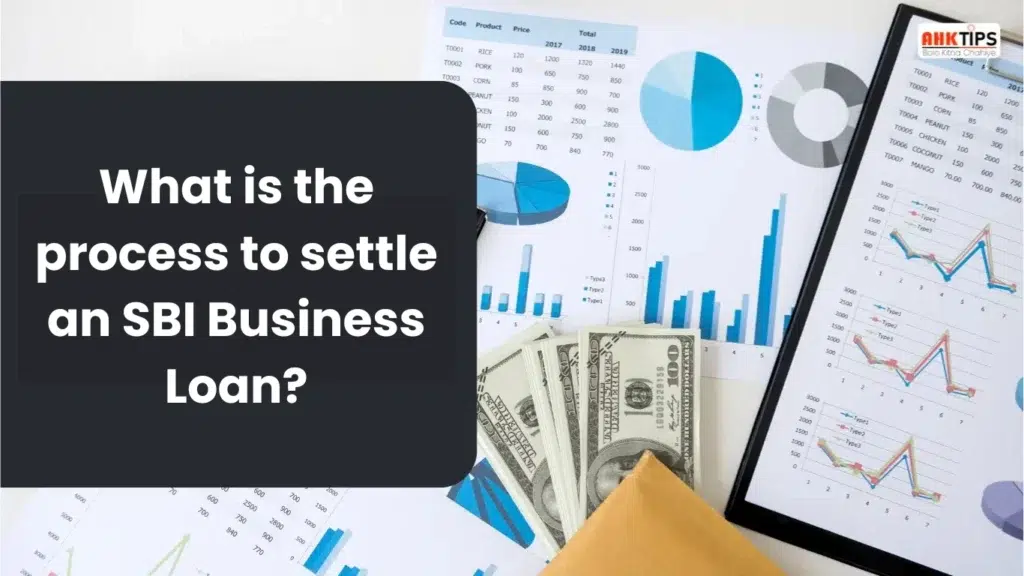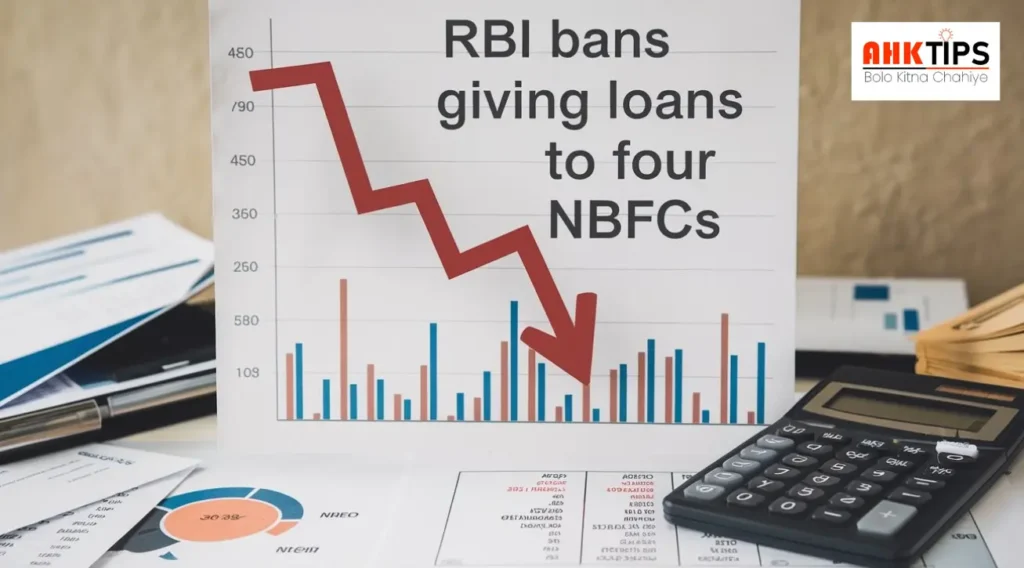





SBI Business Loan Settlement is a concession to the borrower in the event of default of repayment of the business loan in the event of financial hardship. In this scheme, the bank permits the borrower to settle the loan by paying less than the total outstanding amount. This is generally accomplished through a One-Time Settlement (OTS) policy under which the borrower settles an amount in lump sum to settle the loan.
Loan settlement is, however, different from loan closure. To get an SBI Business Loan Settlement, the borrower should visit the bank, request for settlement, present evidence of financial difficulties, and agree on the amount of settlement. The case is examined by the bank before granting the sanction of settlement. When the offer is accepted by the borrower, he has to pay the amount within the period provided. While paying, it is advisable to get a No Dues Certificate (NOC) as the settlement proof.
Before opting for a loan settlement, the borrowers should attempt alternatives like loan restructuring, reducing EMI, balance transfer, or seeking government financial aid to avoid a negative credit impact. Loan settlement should be considered at a juncture when it has no alternative. Borrowers may also approach SBI and negotiate to receive a favorable settlement.
It requires money to do business, and businessmen sometimes take loans to finance expenses, put in place expansion strategies, or invest in emerging opportunities. The State Bank of India (SBI) is among the leading banks that provide business loans to entrepreneurs, small-scale industries, and start-ups. Repayment of a business loan at times becomes challenging because of financial troubles, market conditions, or unexpected losses.
Loan settlement is when the borrower and bank agree to settle the loan by paying a smaller amount than the amount due. It typically occurs when the borrower cannot repay the loan because of financial problems. SBI, like all banks, offers settlement facilities on specific terms. A loan settlement will ease the burden but has some disadvantages, like a negative effect on the CIBIL score that will dilute future borrowing capacity.
To settle an SBI Business Loan Settlement, the client must first make contact with the bank and establish their financial woes. The case will then be assessed by the bank, with a one-time settlement (OTS) where they pay a one-time sum to settle the loan. The process is via negotiation, paperwork, and the authorization of the bank. Attention needs to be paid to knowing all conditions and terms before executing the settlement.
In this article, we will talk about the step-by-step process of settling an SBI Business Loan Settlement, the eligibility criteria, the effect on the credit score, and the loan settlement options. With these facts, business owners will be able to make a decision and know the best possible method of handling their financial obligations.
An SBI Business Loan Settlement is a process by which the State Bank of India (SBI) provides a borrower with a chance to repay their business loan by paying an amount less than the total outstanding amount. This generally happens when the borrower is cash-strapped and is unable to repay the loan, say, due to business losses, cash flow problems, or unexpected market conditions.
In a loan settlement, the bank and the borrower are involved in a transaction whereby the bank is compensated with a one-time sum (also called One-Time Settlement or OTS) to bring down the loan. The paid-up amount is smaller than the total outstanding amount of the loan, easing the borrower from the burden of money. Loan settlement differs from loan closure in the fact that loan settlement negatively affects the CIBIL score and reduces the scope for future loans.
An SBI Loan Settlement is achieved by a negotiation process between the bank and the borrower. If a businessman is facing difficulties in repaying his loan due to a financial crisis, he can go to SBI with a request for a settlement. The bank will analyze the financial condition of the borrower and determine if he is worthy of a One-Time Settlement (OTS).
If sanctioned, the bank provides a lower amount that is to be paid by the borrower in lump sums to settle the loan. It is typically lesser than the outstanding loan but is to be repaid within a stipulated time. When paid, the bank settles the loan as “settled” rather than “closed.”
Let us understand both of these in detail:
In this, the borrower negotiates with his bank so that some part of the total loan amount can be waived off. This means that the borrower has to pay less than his original borrowing. This process is adopted when the borrower is unable to repay the entire loan amount and tries to settle with the bank.
Credit Card Loan Settlement is a process through which you can reduce your credit card dues by negotiating with the bank or credit card provider. When you are unable to pay the entire outstanding amount of your credit card and your financial situation becomes critical, the bank or credit card company agrees with you. In this, you are given a chance to end your liability by paying a certain percentage of the principal amount.
If you do not like the option of an SBI Loan Settlement, then you can also consider some other options, such as:
The impact can be seen in the following ways:
If you’re struggling to pay back the SBI business loan, settling the loan seems to be a possible option. But then again, as with anything else, it has two sides to its coin. Following are the positive and negative points about it:
If you want to apply it online, then follow the easy steps given below:
SBI Business Loan settlement can be a great solution for the borrower who is under pressure due to a financial crisis. It assists you in settling the loan by paying less money, which can provide immediate relief from the financial pressure. But note that a loan settlement differs from paying off the full loan. Although it gets you out of debt burden and court proceedings, it will negatively affect your CIBIL score, thus making it challenging to secure loans in the future.
It is always advisable to explore other options like loan restructuring, reduction of EMI, balance transfer, or availing the government’s financial support before paying a loan. These options allow you to service your loan without impacting your credit score. Settlement is the last resort, therefore, you have to negotiate well with the bank to negotiate the best and ensure you receive a No Dues Certificate (NOC) upon final payment.
One can apply for an SBI Business Loan Settlement online by making a call to the bank, filing a settlement application, presenting financial documents, and crediting the settled amount within a specified period. As settlement affects your future finances, always seek the advice of a finance expert before taking a final call.
Que: What discount can I get through loan settlement?
Ans: The Discount varies with the borrower’s financial situation, amount of loan, and SBI policies. As a rule, banks may give a discount of 20-50% of the outstanding loan.
Que: How long does it take to settle the loan?
Ans: It will take a few weeks to several months, depending on SBI’s examination, negotiation, and paperwork.
Que: Can I negotiate the settlement amount with SBI?
Ans: Yes, negotiation with the bank is possible to get a lower settlement. Accurate financial documents and a valid settlement reason enhance your opportunity to get a better offer.
Que: What is an SBI Business Loan Settlement?
Ans: SBI Business Loan Settlement is a facility in which the bank permits the borrowers to settle their loans by paying a smaller lump sum than the outstanding loan amount. It is usually offered to borrowers who are facing financial hardship.
Que: Who is eligible for an SBI Business Loan Settlement?
Ans: Borrowers who cannot repay the loan due to financial difficulties, say business losses, poor cash flows, or economic depressions, can be considered for a loan settlement. The bank reviews each case before approval.
Previous Post

Next Post
